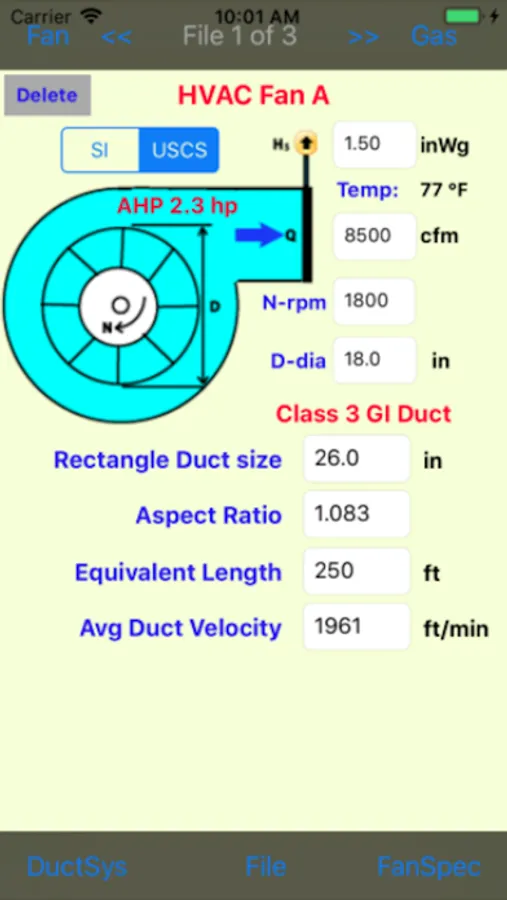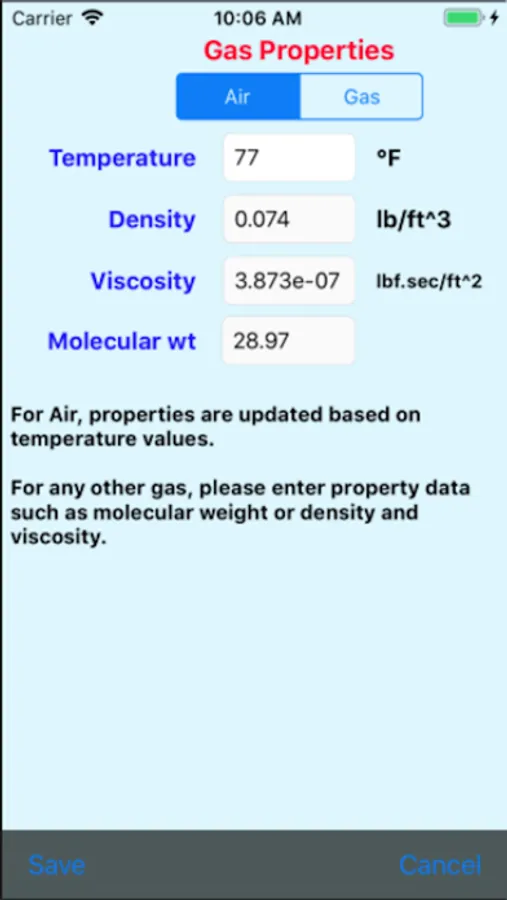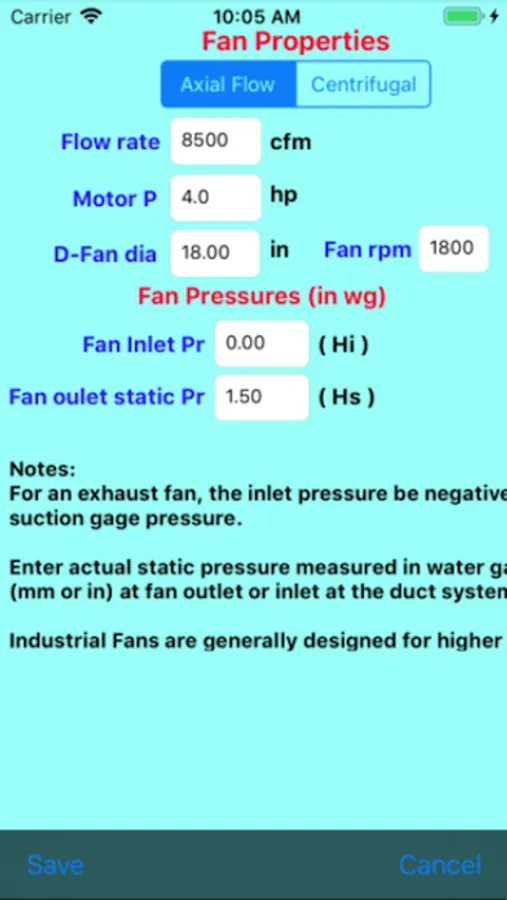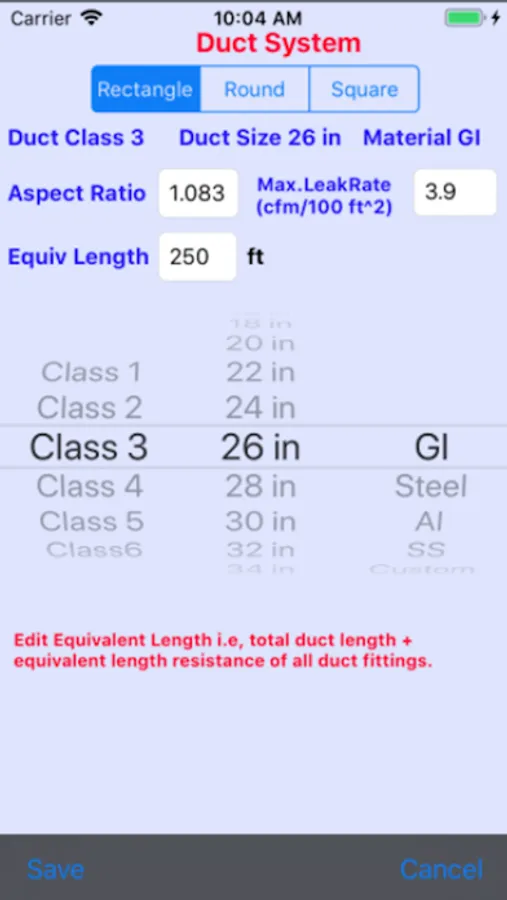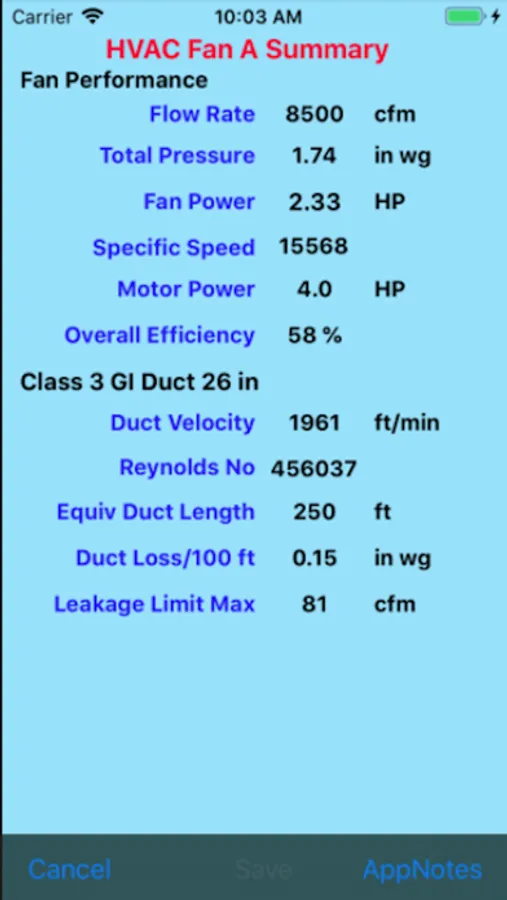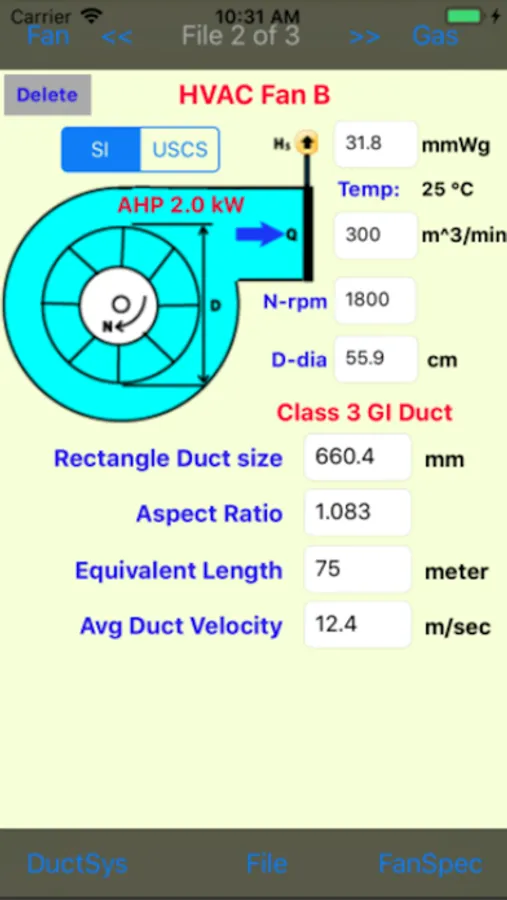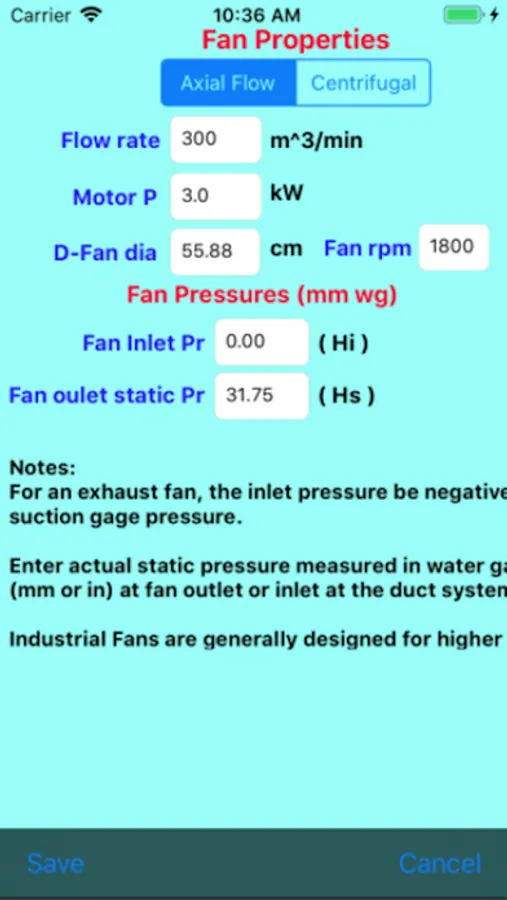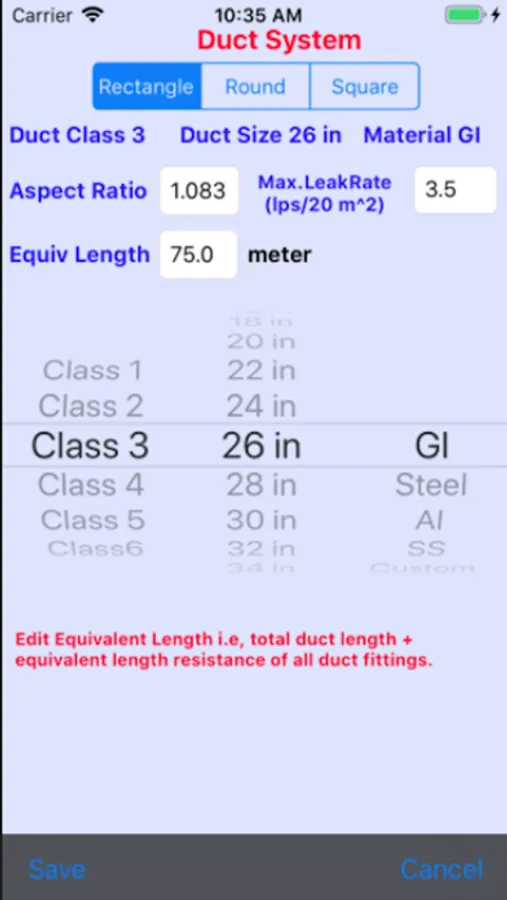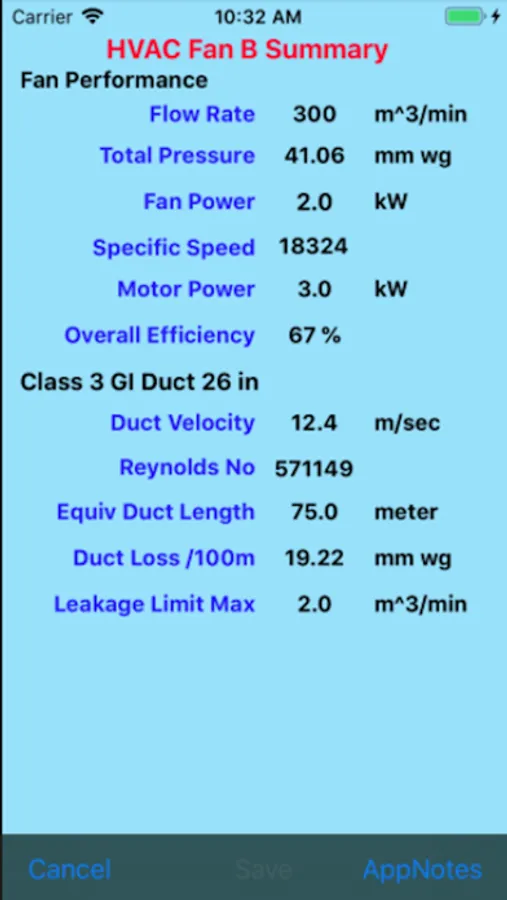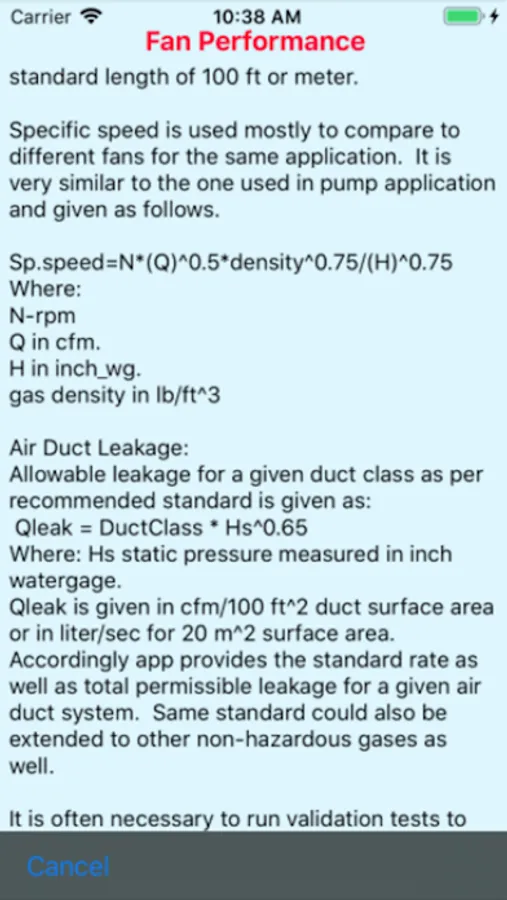About Fan Spec Performance
FanSpec helps to evaluate different fan specification for a given application based performance characteristics such as flow rate, static pressure, shaft power, and fan efficiency. It also determines the average duct velocity duct pressure loss and duct leakage rates that are very critical to satisfactory performance and energy efficiency. Users can create multiple applications of fan-duct system and then save it in a file for evaluation and review.
Most manufacturers provide fan performance data in the form of fan curve (Q vs H). However, the operating point on this curve depends upon the total resistance offered by the duct system. This app helps application engineers to quickly evaluate different options available in selection and application of fans. One can chose either SI or USCS system of units for input and outputs as shown in the screen shots.
Fan properties:
Fans are categorized based on the type of flow. The flow can be either axial or radial by centrifugal action based on type of application it is employed. In either case one can edit and enter key fan specification data as shown in the following screen shot.
Gas properties:
By default Air is used as gas medium and its properties are updated based on the input temperature. For gases other than air, the property data such as density, viscosity at given temperature for better accuracy.
Duct system
Users can choose any duct system based on cross section, class, size and material. Upon selection, app auto updates the duct leakage rates as per recommended standards. The total equivalent length data is used for evaluation of duct losses that includes resistance due to different duct fittings and terminal box etc.
Performance summary:
A comprehensive summary is provided as shown in the screen shot that includes different performance characteristics of a fan-duct system. This would help in evaluation of different fans for a given application. App notes is provided for a quick reference that has brief descriptions of different fan performance characteristics. In addition link is provided to a complete documentation on implementation and validation of different math-models used in all apps.
Most manufacturers provide fan performance data in the form of fan curve (Q vs H). However, the operating point on this curve depends upon the total resistance offered by the duct system. This app helps application engineers to quickly evaluate different options available in selection and application of fans. One can chose either SI or USCS system of units for input and outputs as shown in the screen shots.
Fan properties:
Fans are categorized based on the type of flow. The flow can be either axial or radial by centrifugal action based on type of application it is employed. In either case one can edit and enter key fan specification data as shown in the following screen shot.
Gas properties:
By default Air is used as gas medium and its properties are updated based on the input temperature. For gases other than air, the property data such as density, viscosity at given temperature for better accuracy.
Duct system
Users can choose any duct system based on cross section, class, size and material. Upon selection, app auto updates the duct leakage rates as per recommended standards. The total equivalent length data is used for evaluation of duct losses that includes resistance due to different duct fittings and terminal box etc.
Performance summary:
A comprehensive summary is provided as shown in the screen shot that includes different performance characteristics of a fan-duct system. This would help in evaluation of different fans for a given application. App notes is provided for a quick reference that has brief descriptions of different fan performance characteristics. In addition link is provided to a complete documentation on implementation and validation of different math-models used in all apps.
